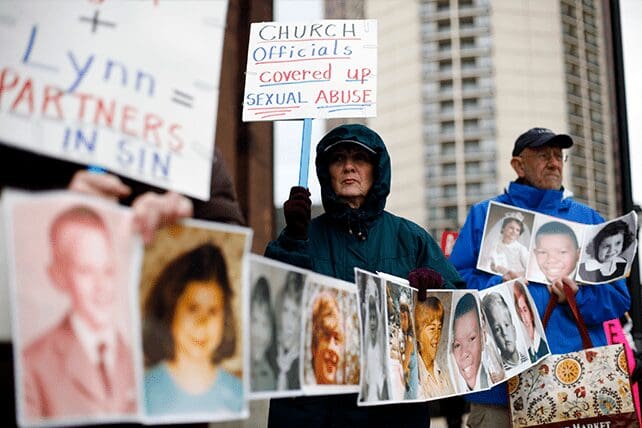(RNS) — A new report based on interviews with some 300 Catholic priests, nuns and laypeople concludes that clergy aren’t adequately prepared to wield the power they exercise and need more education on questions of sex and gender.
The report, “Beyond Bad Apples: Understanding Clericalism as a Structural Problem & Cultivating Strategies for Change,” released Monday (Aug. 15), explores the links between clericalism — clergy’s focus on its authority — and clergy-perpetrated sexual abuse.
The study’s authors, Julie Hanlon Rubio and Paul J. Schutz, both professors at Santa Clara University, a Jesuit institution in Northern California, initially intended to survey 600 respondents, drawn proportionally from lay, religious (those who take vows but are not ordained to the priesthood) and priests, but were turned away by five of the six dioceses and diocesan seminaries they approached.
The authors admit that this “likely means that our respondents are biased towards agreement with our theory of clericalism” and that “our data leans in one direction.”
Nearly half (48.4%) of the 300 who participated were lay Catholics, 22% were nuns, 16% were priests and 6% were men in formation for the priesthood. More than two-thirds of their responses from priests came from those educated in Jesuit institutions.
The report was funded by a grant from Fordham University as part of a project dubbed, “Taking Responsibility: Jesuit Educational Institutions Confront the Causes and Legacy of Sexual Abuse.”
Rubio and Schutz wanted to move away from asking, “Is he a good priest or a bad priest?” and ask instead, “What are the underlying reasons that this priest is acting in this way?”
Existing studies, said the authors, “have focused on individuals who engage in abuse due to personal weakness, psychosexual vulnerabilities, the influence of broader historical movements, or poor theology and training.”
Schutz told Religion News Service that their aim was to understand how “structural clericalism operates in the church,” comparing clericalism to the way structural racism shapes the lives of people of color.
Rubio said, “When you blame ‘bad apples,’ then everybody else is sort of innocent, as long as we go after the bad apples. But when you say there’s a problem with the structure, that’s a much bigger problem, and we’re all implicated.”
The authors said their data shows that sex, gender and power are all components of structural clericalism, which in turn keeps priests above and apart from the rest of the church and potentially enables abuse.
Nearly half (49%) of priest respondents and 73% of those in formation said that they were told repression or sublimation were strategies for dealing with their sexuality (how one lives as a sexual person), according to the report. This number increases to 83% among non-Jesuit-educated priests.
The report also noted that 70% of those in formation and 51% of priests said it was difficult to talk about their sexuality. More than 75% of all respondents said the church would be a healthier institution if priests spoke openly about their own sexuality.

